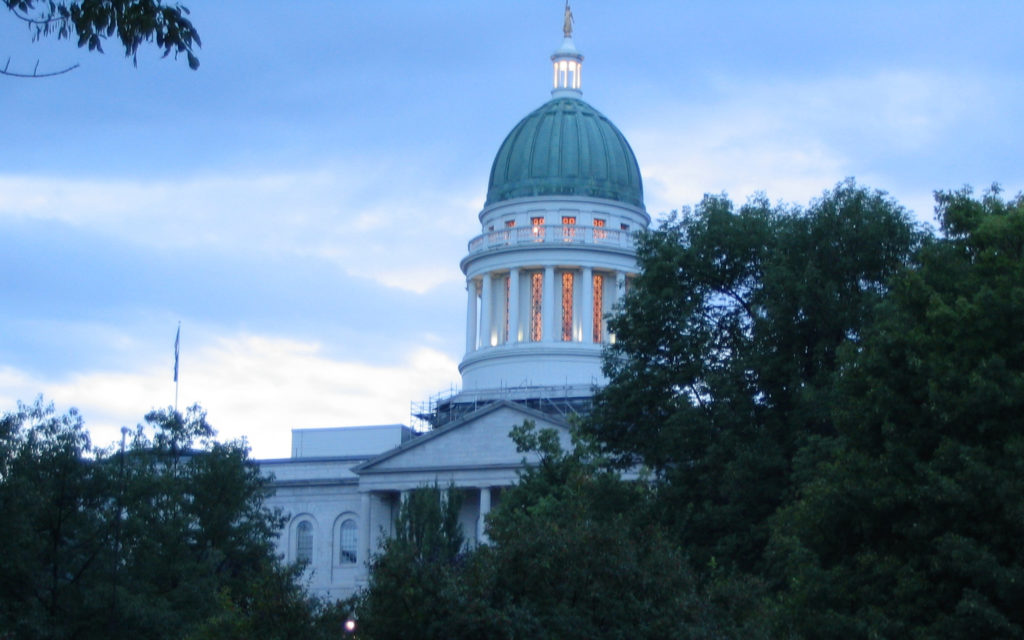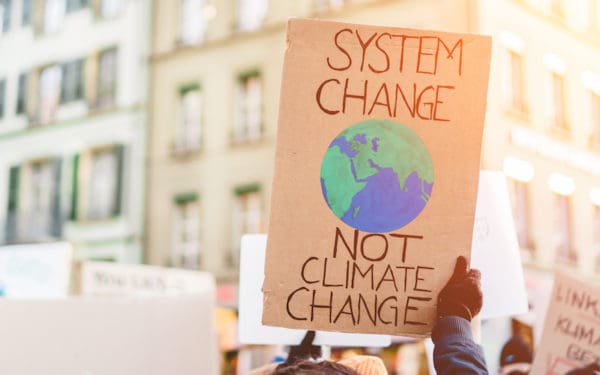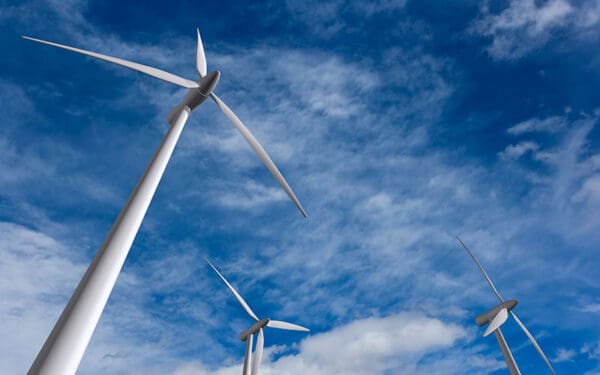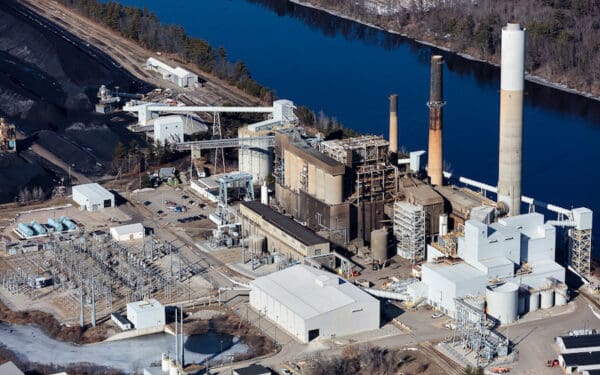
With new leadership in the governor's office and democratic majorities in both chambers of the State’s legislature, Maine is well-positioned to make progress after eight years of obstruction. Photo: Ken Lund
After two terms of climate denial in the governor’s office, Maine is ready to tackle climate change. In a definitive rebuke to outgoing Governor Paul LePage’s staunchly anti-environmental, anti-renewable energy agenda, Mainers came out in huge numbers last month to elect Attorney General Janet Mills to replace him. Mills campaigned on commitments to renewable energy and aggressive cuts in climate-damaging emissions. With democratic majorities in both chambers of the State’s legislature, Maine is well-positioned to make progress after eight years of obstruction.
This transition comes at a critical time – with our federal government actively undermining climate policy under the Trump administration, state action is more important than ever in the global fight to end our addiction to polluting fossil fuels.
LePage Administration Undermined Climate Progress for Eight Years
For the last eight years, Governor LePage’s prolific use of the veto power thwarted bipartisan efforts to make climate progress.
His Public Utilities Commission created unprecedented rules that impose fees on Mainers with solar panels for the clean electricity that their panels produce. When the Legislature stepped in to protect Maine people and businesses, LePage stomped out the bill that would have fixed the problem and boosted the state’s solar industry. He also put a moratorium on new development of wind power in the state.
CLF and our partners have worked just as hard over these eight years to counter the damage LePage’s policies have done. Most recently, we challenged the wind moratorium and solar rules in court because they hurt the people of Maine by putting good jobs, economic growth, and energy independence at risk.
Now, with Governor-elect Mills entering office in January, it’s time to get Maine back on track.
Incoming Mills Administration Can Make Maine a Climate Leader
Maine’s climate policies haven’t just stagnated under the LePage administration. In many respects, they have regressed. The Mills administration and legislature can and must act quickly to fix what we can. Withdrawing the moratorium on wind energy development and repealing the new and regressive fees on solar panel owners would be good places to start.
But under the new Mills government, Maine can do so much more than just play catch up. Maine can be a leader. The state needs to commit to a broad framework for tackling climate change, an overarching strategy that will drive forward better policy on renewable energy, utility reform, energy efficiency, and the too-long-ignored transportation sector.
This comprehensive approach will grow our economy by creating jobs in the renewable energy sector and other new industries while saving Mainers money with more efficient energy systems. By improving the state’s transportation sector – currently our single largest source of climate-damaging emissions – we can provide Mainers with cleaner ways to get around while reducing pollution.
We Can’t Waste Any More Time
Maine’s economy is tied to a healthy environment and a stable climate. And as we’ve learned from the recent UN report on climate change and the US National Climate Assessment, we don’t have any time to lose to save our economy – and what we love about living in Maine.
Our fisheries are vulnerable to rising temperatures in the ocean, and the Gulf of Maine is one of the fastest-warming bodies of water on the planet. We’re already seeing major impacts to the Atlantic cod, which was decimated by overfishing and now is moving to colder waters farther north. Higher temperatures could push lobster and other fish into Canadian waters as well, threatening our historic fishing industry.
On land, our farms aren’t expected to fare much better. A warming climate is already exposing our crops to new pests and throwing off the timing of flowering plants, like peaches and apples. Rising and fluctuating temperatures could cause seasonal drought and heavy rains, destroying an entire season’s crops.
Even our ski resorts and tourism economy are at risk, as milder winters shorten the snow-making season and more rain washes away what does fall.
To save the state’s economy and way of life, we need to act now.
A Chance for Maine to Lead
With the Mills administration and a more receptive state Legislature, Maine can be an example for the country. We have an opportunity to prove that a climate change agenda can be a job-creating agenda; that growth in the renewable energy industry means growth in the economy; that prioritizing the environment means prioritizing health, people, and communities.
It can be a return to our state motto, Dirigo: “I lead.”
We look forward to working with the Mills administration and the new Legislature to lead Maine in a new direction – and to be a climate leader for other states to follow.




